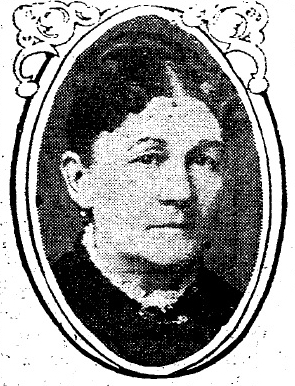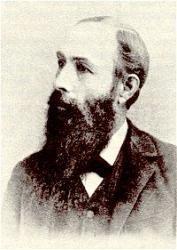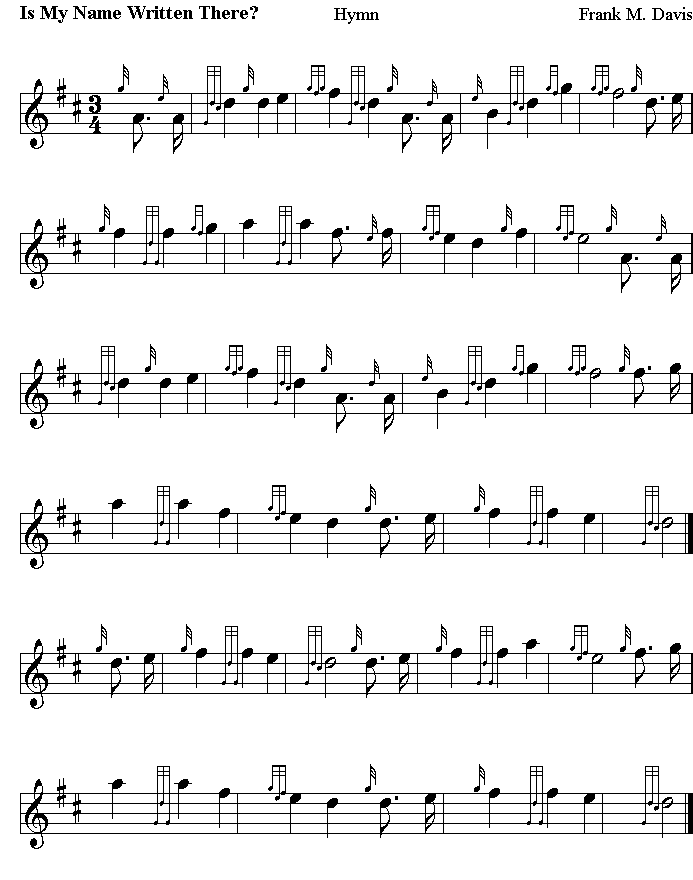 |
||||||||

Best viewed in
|
Is My Name Written There?
She was married in 1844 to Ellis Usher Kidder, a music publisher employed at A. B. Kidder’s Music Typography, a music printing shop founded by his brother, Andrew Bradshaw Kidder. After their marriage, the Kidders resided at Charlestown, Massachusetts (now part of the city of Boston), where two children were later born: Mary Frances (also known as May), born January 11, 1845, and Edward Ellis, born September 15, 1847. Another son, Walter Bradshaw, was born on July 5, 1853, in nearby Malden, Massachusetts. The Kidder family moved to New York City in 1857. After the Civil War broke out, Ellis Kidder enlisted as a private in Company C of the 4th Regiment, New York Infantry on May 30, 1861. Mustered in for two years of service, Ellis died of disease on September 23, 1862, at Keedysville, Maryland, just six days after participating in the Battle of Antietam, one of the bloodiest battles of the Civil War. Left alone with three young children to care for, Kidder’s writing hobby became a much-needed source of income. She began to write with greater frequency, contributing both poems and short stories to various magazines and newspapers. Four years after the death of her husband, Kidder’s home was once again beset with tragedy. On August 3, 1865, on a visit to Somerville, Massachusetts, her youngest son Walter drowned while swimming. Eighteen years later, her only daughter Mary Frances passed away on April 11, 1883, of heart disease. “May,” as she was known, was a talented sketch artist. Mrs. Kidder was active in the temperance movement and was one of the first members of the Sorosis club, the first women’s club in the United States. She was a religious woman, but as her daughter-in-law Augusta explains, “[she] was not hedged about by doctrinal or a dogmatic belief. She was a deedest, not a creedest, believing fully in the humanitarian idea of tolerance.” Most of the available biographical sketches on Kidder claim she was a Methodist, but evidence suggests she may have been a member of Charles Force Deems’ non-denominational Church of the Strangers, in New York City. Kidder loved children and animals, and was described by her daughter-in-law as gentle, patient, and always serene. “Nothing ever marred her serenity, and everybody found in her a sympathetic listener.” She was fiercely independent and refused to lean on others for support, mentally and materially. “Absolutely fearless she was too, but not courageous,” said Augusta. “At the age of eighty-four I took her automobiling for the first time. Thinking it was a novel experience for an old lady, as we were tearing along I asked her if she was afraid. ‘Not a bit.’ was the reply; ‘why should I be? I wouldn’t mind going up in a balloon.’ Her will was of iron, but she never allowed her ideas to interfere with another’s; she respected every one’s opinion.” Kidder was a prolific writer, and it was claimed that she averaged two poems per week during the last sixty years of her life. For more than twenty five years she contributed a poem each week to the New York Ledger, and at the time of her death she was contributing a poem a week to both the Waverly Magazine and the New York Fireside Companion. Other periodicals to which she frequently contributed include Demorest’s Monthly, Packard’s Monthly, and the New York Weekly. In her later years Kidder began writing “passionate love poems,” although her son Edward, a noted playwright, maintains this was purely “for revenue only.” The Boston Herald estimated that during her lifetime Mrs. Kidder earned more than $80,000 from her verse. But it is her hymns for which she is remembered today. Some of her best-known hymns include “We Shall Sleep, but Not Forever” and “Is My Name Written There?” According to her daughter-in-law, Kidder was modest about her writing talent. “She utterly rejected the idea that she possessed even ordinary talent as a versifier but was vain about her sewing, and the dear little mother-in-law was no sewer at all. In her lifetime I have never seen her sew 20 stitches at a time, yet she would love to pose as a beautiful seamstress.” In 1903 Kidder returned to Chelsea, Massachusetts to live at the home of her brother, Daniel W. Pepper, where she died on November 24, 1905. She is interred at Woodlawn Cemetery in Everett, Massachusetts.
Lyrics by Mary A. Kidder
|
|||||||


